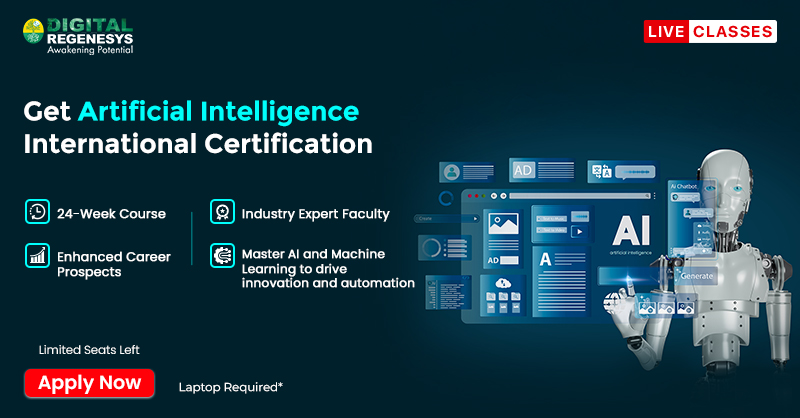What is Agentic AI?

Artificial Intelligence (AI) has evolved beyond executing simple instructions. It now includes systems capable of autonomous decision-making and goal-oriented behaviour.
In this article, we will explore Agentic AI, which allows machines to act independently with purpose. Understanding this concept is crucial for students, professionals, and researchers seeking insight into advanced AI applications.
By examining its characteristics, functionalities, and real-world uses, readers will gain a clearer view of how Agentic AI differs from conventional AI and why it is becoming increasingly significant in multiple domains.
Agentic AI refers to systems designed to act autonomously while pursuing specific goals. Unlike traditional AI that simply processes inputs and generates outputs, Agentic AI evaluates situations, plans actions, and adapts to changing circumstances.
Therefore, understanding its key traits can help identify where it adds the most value. Additionally, these systems can incorporate feedback loops to continuously refine their actions and achieve objectives with greater accuracy over time.
Key Characteristics of Agentic AI
Agentic AI is distinguished by its ability to operate independently, make decisions, and pursue objectives with purpose. Unlike traditional AI, it is not limited to predefined tasks and can adjust its behaviour according to new information.
Therefore, understanding these characteristics enables better application in real-world scenarios. Its traits also allow it to support decision-making in uncertain or dynamic environments, making it highly valuable in industries where real-time responses are critical.
Here are the main features of Agentic AI:
- Autonomy: Operates without continuous human guidance.
- Goal-Oriented: Focuses on achieving specific objectives.
- Adaptability: Adjusts actions to changing circumstances.
- Proactive Decision-Making: Anticipates challenges and plans solutions.
- Learning from Experience: Improves decision-making based on feedback.
- Context Awareness: Understands and reacts to environmental conditions.
- Self-Optimisation: Refines strategies to perform more efficiently.
Get insights on why Companies Value Employees with Artificial Intelligence Course Certificates?

How Agentic AI Works?
Agentic AI combines multiple AI technologies to function effectively. It integrates data processing, pattern recognition, and decision-making algorithms to perform tasks that require autonomy and independent judgment.
Therefore, its operation depends on the interaction between learning systems and planning algorithms. By combining predictive analytics, reinforcement learning, and real-time data, Agentic AI can evaluate multiple options and select the optimal path to achieve goals.
The technology works through the following components:
- Machine Learning (ML): Analyses data to guide actions.
- Reinforcement Learning: Optimises behaviour through rewards and penalties.
- Natural Language Processing (NLP): Interprets and generates human language.
- Knowledge Representation: Stores and applies information for reasoning.
- Planning Algorithms: Determine sequences of actions to achieve goals.
- Sensor Integration: Receives real-time input from the environment.
- Decision Engine: Selects the best actions based on data and objectives.
What are the Applications of Agentic AI?
Agentic AI is applied across multiple industries to enhance efficiency and inform decision-making. Its autonomous and adaptable capabilities allow it to operate in environments with changing conditions or complex tasks.
Therefore, its practical applications demonstrate its versatility and impact. Organisations across various sectors are implementing Agentic AI to enhance productivity, reduce human error, and provide intelligent insights that support critical business decisions.
Some key applications include:
- Autonomous Vehicles: Makes real-time navigation decisions and optimises routes.
- Healthcare Systems: Suggests treatment plans based on patient data and predictive models.
- Financial Services: Provides data-driven investment insights and fraud detection.
- Customer Support: Resolves queries automatically while personalising responses.
- Industrial Automation: Optimises production, predicts maintenance needs, and manages resources efficiently.
- Supply Chain Management: Adjusts operations dynamically based on demand fluctuations.
- Smart Home Systems: Manages energy consumption and automates daily routines.
What are the Advantages of Agentic AI?
Agentic AI offers advantages that enhance operational efficiency, improve decision-making quality, and facilitate scalability. Its ability to act autonomously reduces human workload while maintaining consistent performance.
Therefore, organisations adopting it can achieve better outcomes and enhanced productivity. Additionally, Agentic AI enables businesses to respond quickly to unforeseen challenges, providing competitive advantages in rapidly evolving markets.
The main advantages are:
- Efficiency: Completes tasks faster and more accurately.
- Scalability: Handles increasing workloads effectively.
- Consistency: Maintains performance quality over time.
- Decision Quality: Learns and improves decision-making.
- Cost Reduction: Minimises labour and error-related expenses.
- Rapid Adaptation: Responds effectively to changing scenarios.
- Innovation Support: Provides insights that aid in strategic planning.
Learn Why Lifelong Learning is Crucial in the Artificial Intelligence Course Landscape?
What are the Challenges of Agentic AI?
Despite its benefits, Agentic AI faces technical, ethical, and operational challenges. Designing autonomous systems that are reliable, explainable, and safe requires careful consideration.
Therefore, addressing these issues is critical for successful deployment. Organisations must develop strategies to mitigate potential risks while ensuring AI systems remain transparent, accountable, and aligned with organisational goals.
Key challenges include:
- Complexity: Difficult to design and maintain sophisticated systems.
- Ethical Concerns: Risk of unintended consequences.
- Transparency: Explaining AI reasoning can be challenging.
- Dependence: Overreliance reduces human supervision.
- Data Requirements: Needs large, high-quality datasets to function well.
- Security Risks: Vulnerable to cyber threats if not adequately protected.
- Regulatory Compliance: Must adhere to industry and governmental standards.
What is the Future of Agentic AI?
The future of Agentic AI promises greater autonomy, adaptability, and collaboration with humans. As research and technology advance, AI systems will handle more complex tasks independently. Therefore, understanding emerging trends is essential for professionals preparing to work with AI in various industries.
Future systems may integrate ethical decision-making, explainability frameworks, and advanced multi-agent collaboration to provide even more robust solutions.
Future developments are expected in:
- Increased Autonomy: Handles more complex tasks independently.
- Enhanced Adaptability: Operates effectively in diverse environments.
- Broader Applications: Expansion into new industries.
- Improved Decision-Making: Refined algorithms enhance performance.
- Human-AI Collaboration: Supports human activities for better outcomes.
- Ethical AI Integration: Ensures decisions align with societal values.
- Cross-Platform Coordination: Enables multiple AI systems to work together seamlessly.
Discover information on The Impact Of AI On The Job Market And The Future Of Work.
Conclusion
Agentic AI represents an advanced form of artificial intelligence that combines autonomy, goal-orientation, and adaptability. For individuals interested in practical applications, learning, and hands-on experience, the Digital Regenesys Artificial Intelligence Certificate Course offers structured knowledge and skills.
The course provides insights into AI technologies, methods, and real-world scenarios where Agentic AI is applied. Completing the course helps learners understand the potential and limitations of advanced AI, preparing them to work effectively with intelligent autonomous systems.
Visit Digital Regenesys to explore the Artificial Intelligence Certificate Course and learn more about Agentic AI.
Last Updated: 30 September 2025
